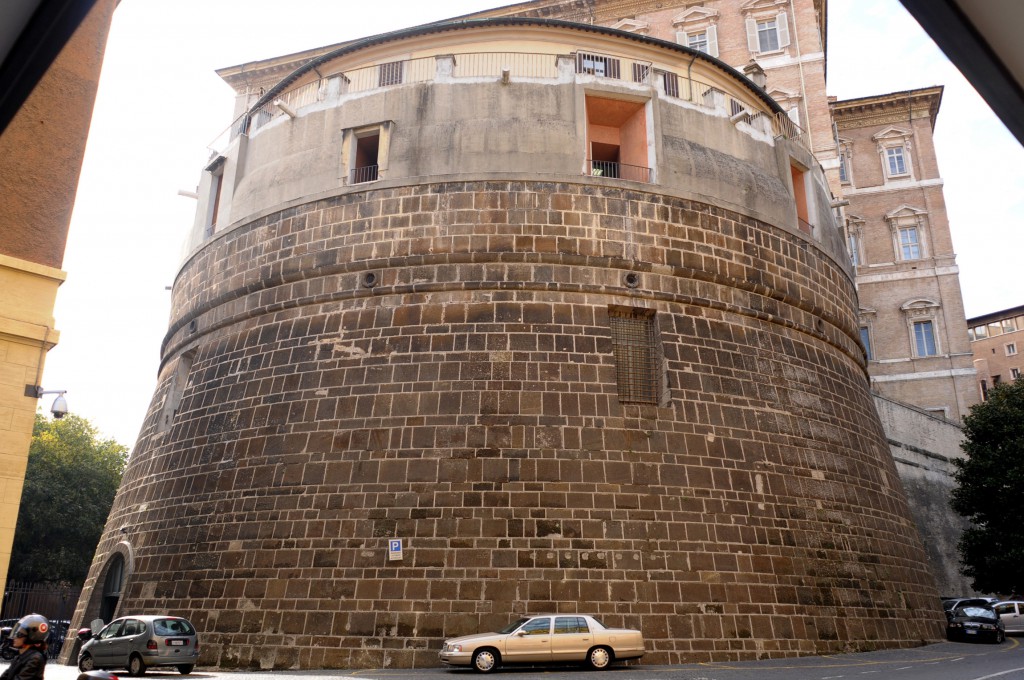
By Cindy Wooden
As part of its continuing efforts to promote transparency and to demonstrate its stability and adherence to industry standards, the Vatican bank published its annual report for the first time in its history.
The Institute for the Works of Religion, as the bank is formally known, released its independently audited report Oct. 1, publishing the 100-page document on its website: www.ior.va.
In his introduction to the report, Ernst von Freyberg, president of the institute, said, “2012 was a successful year for the IOR and for our clients. The IOR posted earnings of 86.6 million euros (about $117 million), which allowed us to contribute 54.7 million euros toward the budget of the Holy See, while transferring 31.9 million euros to our general operating risk reserves.”
The bank’s earnings for 2012 were more than four times greater than the 20.3 million euros it earned in 2011, mainly due to an increase in the value of the securities it invested in, the report said.
In a statement published with the report, Cardinal Tarcisio Bertone, president of the cardinals’ commission overseeing the bank, said, “The IOR has embarked on a course of reform, of which transparency is a key element.”
“It is important to remember that the IOR’s reason for existing is to serve the Catholic Church, in particular its works of charity and its missionary activities, by safeguarding assets and providing payment services,” the cardinal said.
Describing the institute’s operating procedures, particularly its investment policy as “conservative,” Freyberg said, “In 2012, we had a balance sheet total of 5 billion euros in assets, with equity of 769 million euros.”
At the end of 2012, the IOR had approximately 18,900 customers, about half of whom were religious orders. Vatican offices and nunciatures (Vatican embassies around the world) accounted for about 15 percent of the clientele, while about 13 percent of the accounts belonged to cardinals, bishops and priests, and 9 percent belonged to dioceses. Most of the remaining accounts were held by Vatican employees and religious education institutes, the report said.
As Freyberg and other Vatican officials have been insisting for years, the report said the bank includes no secret or numbered accounts, and it insisted that every account holder has some connection to the Vatican.
The report also includes a brief section about the first half of the current year, noting that in the first six months of 2013, the institute’s assets decreased from 4.9 billion euros to 3.9 billion euros, “mainly due to the fact that clients have chosen to invest directly in securities. These investments represent assets held in custody or under portfolio management which the IOR discloses as off balance sheet positions.”
“Taking into account all the assets entrusted by clients to the IOR — including cash, assets held in custody and assets held under portfolio management — the total value decreased by 161 million from December 2012 to June 2013,” it said.
The report mentioned the resignations of the previous bank president in 2012 and of the director and deputy director in July, although it did not go into detail about the circumstances surrounding their departures from the bank.
However, the report did make frequent mention of the measures and papally decreed laws put in place since 2010 to bring the bank and its procedures into line with international standards, particularly regarding the prevention of money laundering and the financing of terrorism.
In an interview Oct. 1 with Vatican Radio, Freyberg said the institute had hired the Promontory Group, a leading financial risk management and regulatory compliance consulting firm, to help the institute review “our procedures for taking on clients and for dealing with clients to ensure that no money laundering can happen at the institute.”
Speaking in English, he said the current review of every account holder “is a hell of a lot of work. We have 20 to 25 people (from Promontory) on any given day doing this work.”
In late June, Pope Francis created a five-member commission to review the activities and mission of the Vatican bank with the aim of guaranteeing that its role and the way it functions are in harmony with the mission of the church.
Even as the commission does its work, Freyberg said he and his staff will continue taking steps “to create a compliant and transparent institution.” It will be up to Pope Francis to “decide later this year or next year in which exact direction he wants to send us.”
Speaking to reporters traveling back to Rome with him from Brazil in late July, Pope Francis said some people have suggested the institute should become a real bank, others say it should be a “charitable fund, others say it should be closed. I don’t know. I have confidence in the work of the people at IOR, who are working a lot, and in the commission” studying the bank and its role. – CNS